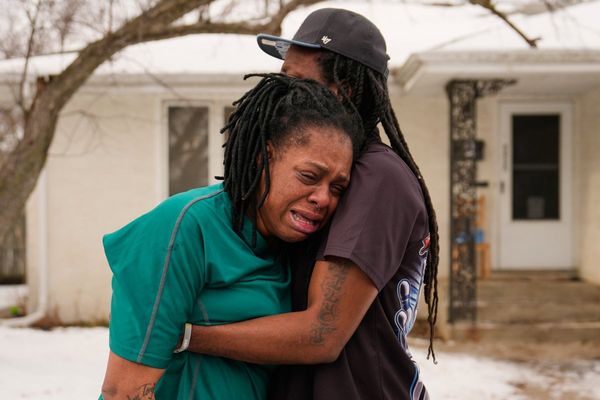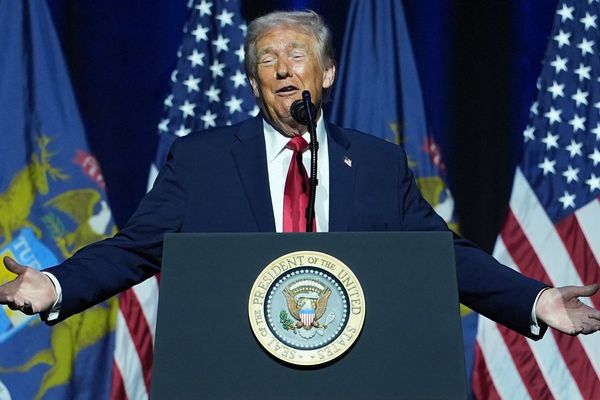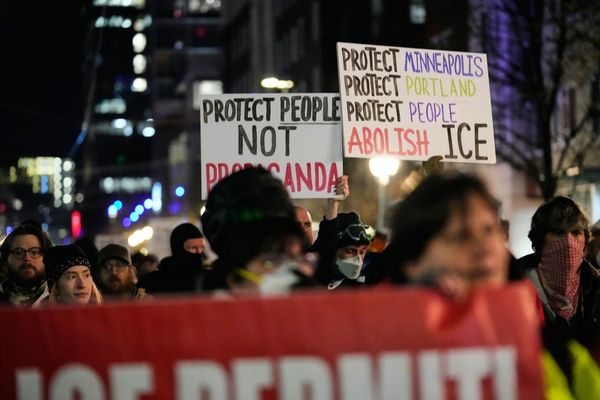Antiracism campaigners in Spain have called on the country’s institutions to do more to crack down on racism in football, after Real Madrid winger Vinícius Júnior laid bare the personal toll exacted by years of racist insults.
Breaking down in tears as he spoke of the systematic barrage of abuse he had faced at more than 10 Spanish grounds, the Brazilian player told reporters on Monday that the situation had “gotten worse” during his time on the pitch.
“More and more I’m losing my desire to play,” he told reporters.
Raúl Martínez Corcuera, a lecturer in media studies at the University of Vic who collaborates with anti-racist group SOS Racismo, said analyses carried out in recent years suggested that each time Vinícius had spoken out, a burst of media attention and often shallow gestures had followed.
But rarely had this translated into meaningful and lasting change, he said. “The state needs to take action,” he said, citing a 2007 law that allows matches to be suspended, clubs to be penalised and for individuals to be sanctioned or arrested if they utter racist insults. “So we have a law,” he said. “When is it used? Never.”
In contrast, Germany’s 2021/22 season saw more than 900 matches suspended over violent behaviour, racism or discrimination across all categories, including amateur football, according to Martínez Corcuera’s research. In France, Toulouse was sanctioned with the deduction of one league point over attacks deemed to be xenophobic.
Italy has also seen several Serie A games temporarily suspended in recent years due to abusive behaviour by fans towards Black players, while some of the country’s clubs have been fined and forced to play in empty venues.
In his remarks on Monday Vinícius pointed to the seeming impunity of his attackers to explain why the behaviour had not abated: “Because people are not punished, they feel like they can keep saying things about the colour of my skin to try to affect how I play,” he said. “I just want to play, and I want to be able to go to stadiums without anyone bothering me because of the colour of my skin.”
Last season La Liga referred 10 racist incidents involving Vinícius to Spanish prosecutors. So far a handful of the cases have been shelved as a lack of investigation or collaboration from clubs meant it was impossible to identify the perpetrators, said Esteban Ibarra, who heads the Movement Against Intolerance, Racism and Xenophobia in Spain.
“We’ve seen a trivialisation of racism in Spain,” he added. “It’s often seen as something that is limited to football pitches and should be solved there, rather than connected to society.”
He pointed to the arrests of four people, accused of hanging an effigy of Vinicius from a bridge in Madrid last year. “It was a gesture reminiscent of the Ku Klux Klan,” he said. Even so, many in Spain were quick to dismiss the action as that of “crazed” fans rather than an “organised racist group”, he said.
The incident took place in January 2023. But the accused were not arrested until months later, amid public uproar after Vinícius confronted Valencia fans who had taunted him in yet another incident of racial abuse.
Prosecutors are seeking four-year prison sentences for the men linked to the effigy.
The country’s first trial of racism in professional football – launched after an Espanyol fan was accused of racially abusing Athletic Bilbao forward Iñaki Williams in 2020 – has yet to begin, despite being expected to start last year.
Carles Viñas, a historian with the University of Barcelona who has long studied racism in football, pointed to wider society to explain the slow pace of change. “Football is part of society. If our society is racist or sexist, it will be reflected in football,” he said.
He drew a link between the pervasiveness of this culture and Spain’s seeming complacency in prosecuting cases, describing those on the frontlines, whether police or prosecutors, as often being “those who are used to trivialising racism”.
What was needed in Spain was far-reaching educational initiatives, particularly for young people, in order to combat these attitudes, he said.
Spain’s minister for education and sport, Pilar Alegría, said Tuesday that a committee that includes La Liga, the Spanish football federation and authorities continue to meet biweekly to weigh action against racist insults. “Any type of discrimination is the antithesis of the values embodied by sport,” she said.
On Tuesday some seized on Vinicius’s comments to highlight the wider consequences of Spain’s failure to address this issue.
Moha Gerehou, a journalist and prominent antiracism campaigner in Spain, described racism as something that steals away time from friendships, love and happiness.
“Racism instead replaces that time with suffering, pain, frustration and a sense of powerlessness. It forces you to be alert,” he wrote on X. “And that’s how it relentlessly hammers away at the mental health of racialised communities.”
Ibarra said he couldn’t imagine the pain that the constant battery of insults and hate had inflicted on Vinícius, his family and those close to him.
“And then there are the thousands and thousands of people who see themselves in him,” he said. “The harm that this is producing for the many boys and girls who play football and who are Black is extraordinary.”







